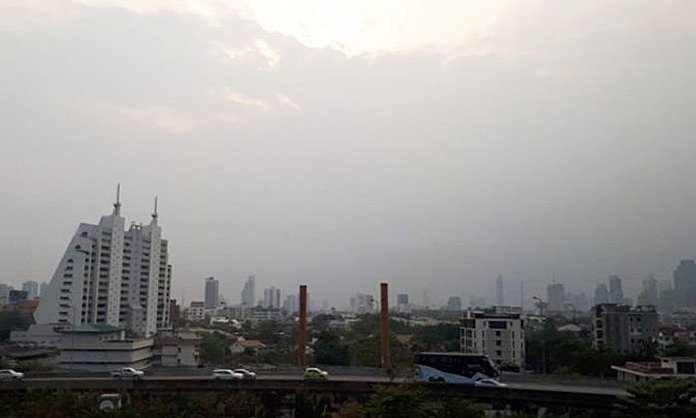Source: Thailand Medical News Aug 02, 2019 6 years, 6 months, 2 weeks, 1 day, 1 hour, 27 minutes ago
In cities in Thailand like Chiangmai where air pollution is often a neglected by the authorities concerned, a new study led by the University of Technology Sydney (UTS) and the Woolcock Institute of Medical Research (WIMR) shows worrying details and also that should be concern to all affected that even low levels of pollution is harmful to ones health.

Air pollution is made up of both gaseous and particulate matter (PM). Annually almost 5 million people die globally as a direct result of air pollution with many more experiencing impaired lung function, developing lung diseases such as asthma and chronic obstructive pulmonary disease (COPD).There are other health diseases accociated with long term exposure including inflammatory and immune issues and even cancer. However research, on the effects of low level air pollution, is often overlooked.
The research team investigated whether a low level of exposure to PM10 was harmful. PM10 refers to particles equal or below 10 microns in size, they make up a large proportion of air pollution and can enter the lung.
“Low level air pollution was often mistakenly treated as ‘safe’ and not harmful to health. In Sydney and other Australian capital cities and also in cities in Thailand, the levels of traffic related air pollution (TRAP) are low by world standards and not often considered a problem in terms of developing chronic lung disease. However almost everyone living in an urban area is exposed to TRAP.” commented Dr. Yik Chan from UTS and WIMR, co-lead author in an exclusive interview with Thailand Medical News.
In cities like Chinagmai and Bangkok, there are a lot of new construction taking place, as well as a growing population and increased traffic is inevitable, hence exposure to these low levelsof pollution is very extensive and high.
The researchers discovered that after three weeks, animal models mice exposed to low levels of traffic related PM10 had an inflammatory response.
The findings from the study indicated that PM is a pro-inflammatory molecule, which exerts effects even at low concentrations. In the model it was found strong, and statistically significant evidence of, lung inflammation and dysregulated mitochondrial activity. The mitochondria are the powerhouse of the cell, which means that any changes to the mitochondria effects energy production by the cell, and therefore how the cell divides and responds to external stimuli and other cellular functions.
The researchers say that people living alongside major traffic areas need to be aware of the potential adverse effects on their respiratory health.
Reference: Yik Lung Chan et al, Pulmonary inflammation induced by low dose particulate matter exposure in mice, American Journal of Physiology-Lung Cellular and Molecular Physiology(2019). DOI: 10.1152/ajplung.00232.2019
